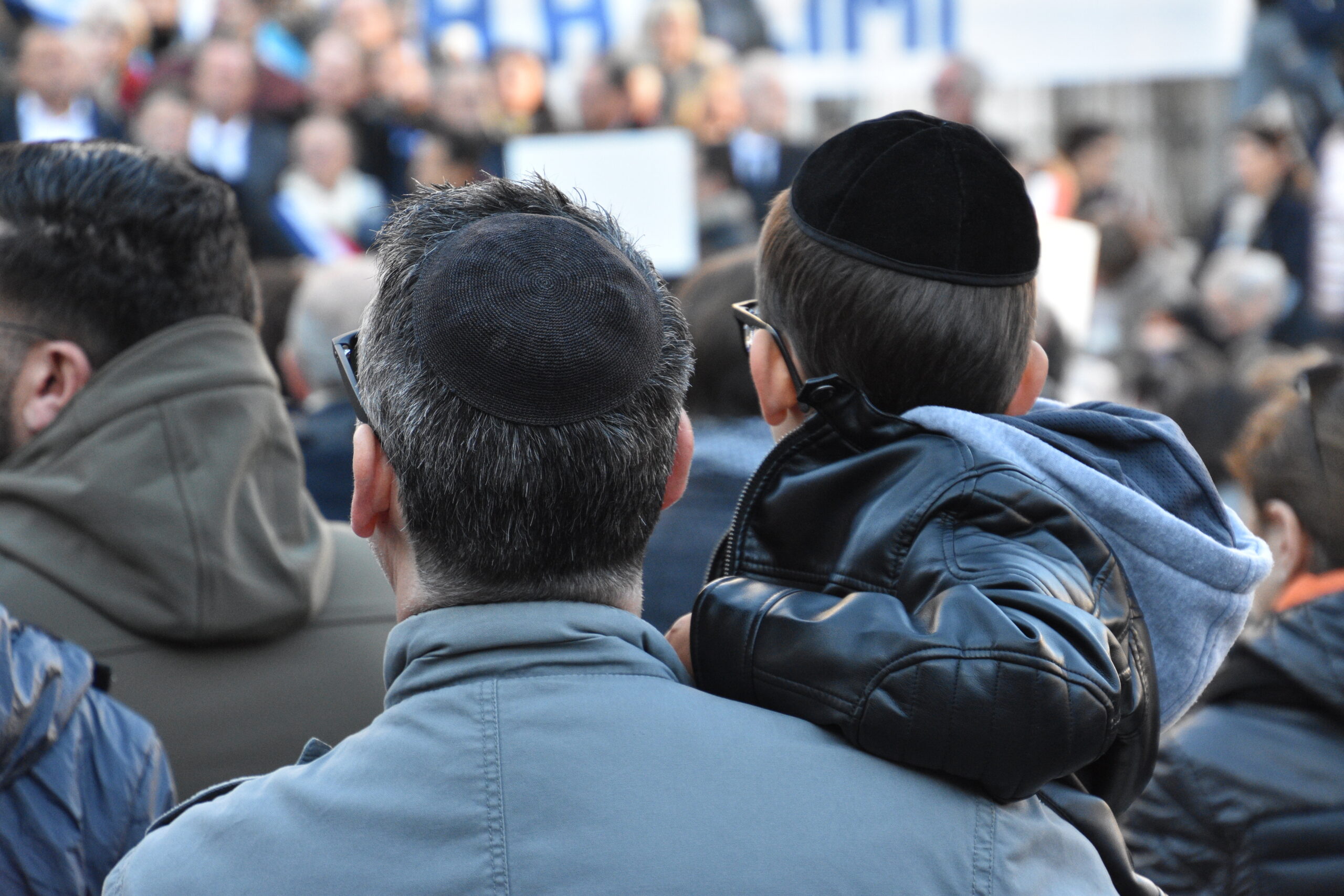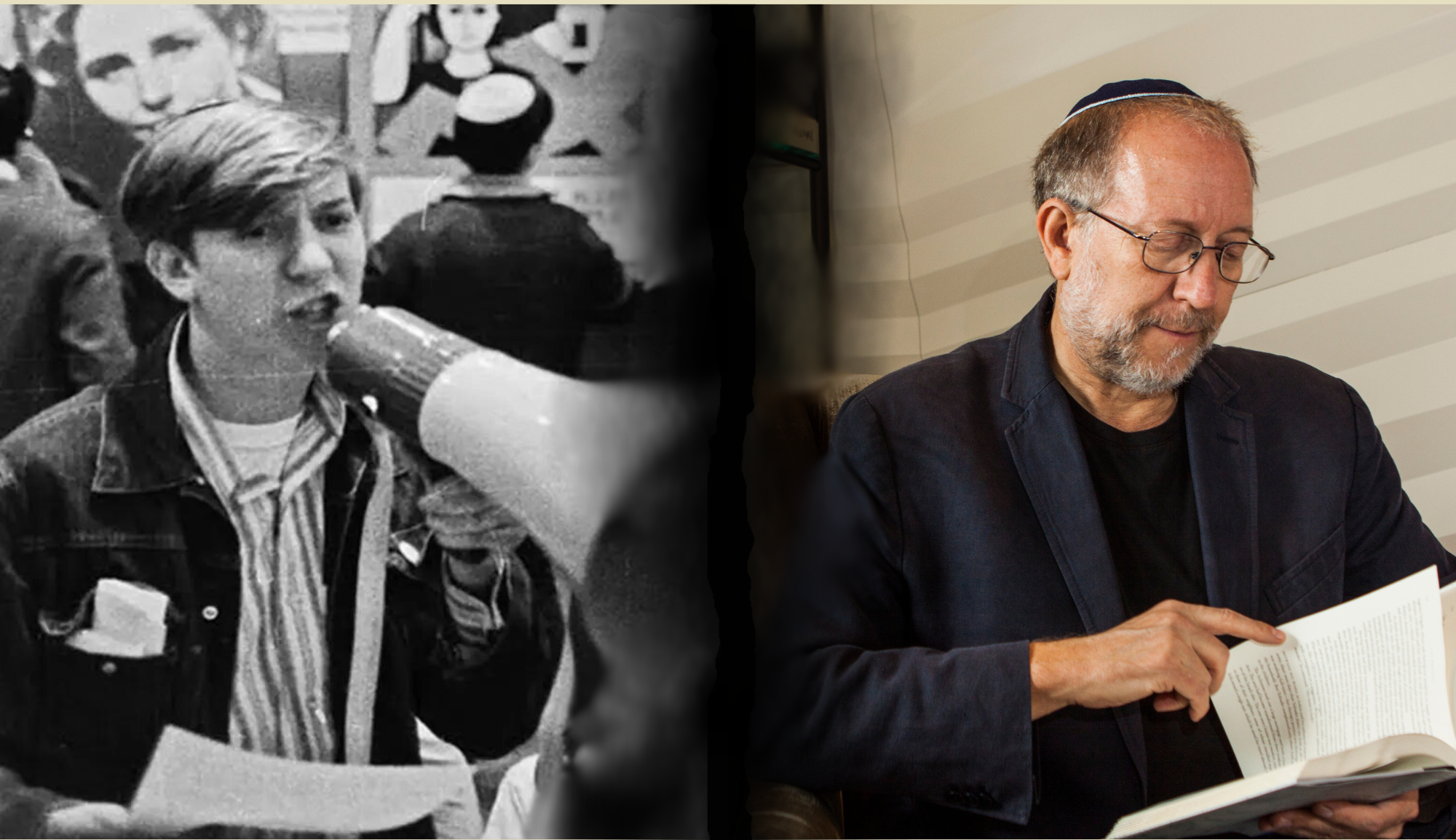American Judaism is not boring.
I found a recent 18Forty podcast that suggested otherwise utterly disappointing. Here’s the precise quote from Rabbi Bashevkin that prompted the discussion:
American Judaism is kind of boring, we’re just replacing ourselves. We’re not building anything. We are just trying to give the next generation the same life that we grew up with. And it is becoming very tired. It’s becoming very defensive, just preserving the level that we have, which is not a small matter because my grandparents had to sacrifice a great deal to even have anything but these generations, I don’t know, the word I use, it has gotten a little bit boring. It feels like it’s Groundhog’s Day, especially American Orthodoxy. Haven’t I seen this movie before? Is this just the same movie but with more pizza stores? It’s not compelling to me and we need a generation to start to realize that.
I understand the impulse to sideline American Judaism because I once shared it, too, but we must recognize that it is flawed.
It’s More Than ‘OK’ to Live Outside of Israel
When I was seriously dating my wife I was often hit with severe pangs of anxiety. Making aliyah had always been a dream and goal of mine, but my wife—my girlfriend at the time—did not at that point share those same ideals as forcefully as I did. I knew I loved her and knew that she was my bashert, but that she didn’t feel the same desire to move to Israel literally kept me up at night and caused me great stress.
It so happens that I was in Israel for Sukkos during this time and a close rebbe of mine connected me with the Tolner Rebbe in Yerushalayim to explain my dilemma. We met a few days later.
After we got acquainted and I explained everything to him, the Tolner Rebbe asked if I loved my now-wife and if I could see myself living a religious life with her. I responded yes to both questions.
Then he asked me: “Do you know who never lived in Eretz Yisrael?”
It sounds simple enough, but I was slack-jawed, unable to answer this riddle.
He waited a few seconds which felt like hours. Then he said—and I’ll never forget how he looked at me—“Moshe Rabbeinu. Moshe Rabbeinu never lived in Eretz Yisrael for one second.”
And the conversation was over. Message received: One could live a Jewish, religious life filled with meaning to the highest degree outside of Israel. There is no reason to feel bad or guilty for being unable to live there. Of course, one can (and should) strive and hope to accomplish that, but it is not necessary in order to live a full, Jewish life.
Now, of course, this story does not always provide the balm I need when I miss Israel. I remarked to an acquaintance that since Oct. 7, I have had very deep pangs of anguish for Israel exacerbated by my not living there. I told him that I feel like one of the paytanim writing about the longing for Zion in the kinos we say on Tisha B’Av, but somehow I’m worse because I don’t live in Israel when it has literally never been easier in human history to go.
But then I’m reminded of the words of the Tolner Rebbe: Being a good, committed Jew whose life is filled with Jewish meaning does not depend on one’s zip code. I want to live in Israel, and I plan to, but right now I have a job to do elsewhere. I don’t think Moshe Rabbeinu’s Jewish life was boring—and neither is mine.
No matter where I am, I can face my Creator three times a day, learn Torah, and teach my children; I can observe Shabbos and connect with God; I can sanctify God’s name. These are all very exciting aspects of my daily life; it is not boring in the slightest. It may not feel as “supercharged” as it can feel in Israel, but again, our religion and our ability to excel in its observance is not zip code-dependent. It is on each of us to see that and bring it into our lives.
On a practical level, yes, I can feel that I’m missing the sense of “Amcha” that one naturally feels in Israel. But that does not make Judaism in America “boring.” It might be made of different ingredients but it sure can still be delicious.
Israel Does Not Have All the Answers
On that note, we should note that living in Israel does not answer all of life’s religious questions. It’s never ideal to criticize Israel or Jewish communities today, but if we want to have a real talk about people’s circumstances, we have to admit to reality.
Israel has communities lacking serious Torah learning; significant percentages of youth not staying religious; secular communities completely rejecting religious life; and other problems that we also face in America.
We can access the deepest emotional and religious aspects of Judaism anywhere. “Ashreinu ma tov chelkenu“—We are fortunate! How good is our portion—is not only recited in Israel. What about Lakewood? Borough Park? Crown Heights? The Five Towns? Boca? The Greater Chicago and Los Angeles communities? Those are religious Jewish communities exploding with excitement seemingly all the time. My family’s life in Teaneck feels the same.
I grew up in West Orange, NJ. In the junior congregation on Shabbat mornings we had kids who came from non-Orthodox households sitting in the same row as kids whose older siblings were learning in Lakewood. I learned so many lessons about the importance of diversity and respect for others in those early years of my religious experience. This is a uniquely American experience and one that I suspect cannot be replicated in Israel due to the lack of blended communities.
And sure, Teaneck can feel a little sleepy as we wave our Israeli flags in Votee Park. I’ve felt that too at times. But especially in this post-Oct. 7 time, I have never felt “bored.”
The Horizontal Mobility of American Jews
On top of that, those communities close to us in America that I mentioned are very accessible to American Jews. We can visit them, make friends in those communities, do business in those communities, and the like all the same. We in America have what I call “horizontal mobility” in and out of these communities—everyone can be fluid in how they engage with Jewish communities to the “right” and “left” of their own.
Based on my own observations, I have not seen blended Jewish communities to the degree to which they exist in America. It appears that in Israel this largely does not exist.
From my experiences—and those others shared with me—in Israel, you are “this” or “that” with not much cross-pollination between communities. When you are born in Israel, you get your communal kippah (for boys) and hair covering (for girls) issued at birth, or you get nothing at all, and if you remain within the religious community, that is what you are for the rest of your life, or so it seems. That too seems pretty boring to me.
The tragic divisiveness between communities in Israel has a long, sad history as communities in Israel are rather closed off to one another no matter the spectrum. You tend to exist in your own echo chamber but it is amplified as the monolithic nature of communities in Israel is so pronounced.
It is this horizontal mobility between Jewish communities that I cherish and hold dear in my American Jewish experience. This does not exclude or downplay the absolutely amazing gift the land of Israel is; it is simply a rejection of Israel as a utopian paradise and of American Judaism being “boring.”
Israeli Jews Need Diaspora Jews
I also disagreed with Rabbanit Taragin’s concluding portion of the interview, encouraging everyone to pay close attention to the end of Tanach—in which the Jews are finally called to return to Zion—as a proof-text for everyone’s need to make aliyah.
There are personal reasons that many living in the Diaspora have for doing so, even if it may be an ideal we strive for (which I do!). At the same time, if we consider American Judaism as “boring,” we deny the possibility of finding any meaning in being a Zionist outside of Israel. And aside from any meaning, there are practical and strategic needs for the existence of Diaspora Jewry.
Foreign policy matters and modern Jewish history strongly demonstrate this (Arc of A Covenant is but one example). I believe that part of the divine intervention in this world, as it relates to Israel, is that the American establishment has basically always been tied to and invested in the successes of Israel as a country. I do not want to envision a world in which America no longer supports or cares for Israel to the extent it has historically. Whatever the geo-political reasons are for this bond, I try to also view them fully in spiritual terms; we are linked together and that is how God is running the world.
Especially in these times, American Judaism has a very exciting role to play, perhaps as it has never had before. It can be financial support or the sort of activism we saw at the nearly 300,000-person rally in Washington in November—which are just two examples—that can galvanize American Judaism around Israel specifically. Not to mention the sense of brotherhood many of us felt with other Jewish communities as we coalesced after Oct. 7 both in support of Israel and in support of one another. It is this loud voice that only we can provide when the rest of the world goes silent. This role we play is what I see as part of the “yad Hashem” that has an impact on the world stage at this time.
In fact, several family and friends of mine living in Israel were not only positively impacted by the rally but also envious that the American Jewish community united across a range of cultures and observance levels—something they felt could not, or would not, ever happen in Israel, simply for its lack of horizontal mobility.
Israel Is Not the ‘Only’
One could argue that, of course, at this post-Oct. 7 moment, American Jews can unite for Israel, but we never could before or after this period. I would counter-argue that at least we have a framework set up in America that allows for cross-denominational unity, whereas, in Israel, it is probably not even a pipe dream. (As one example of Israel’s hurdles, consider how a public Yom Kippur service in Tel Aviv turned awry rather intensely.)
The State of Israel affords Zionists—religious or secular—the zenith of spiritual and historical accomplishment. It is a uniquely special place that was created out of revealed miracle after revealed miracle. People who fail to see this are not being honest with themselves or even with the historical record. It is a treasure for the Jewish People, warts and all. But by no means is it the only way to live a fully engaged and exciting brand of Judaism. A special one for sure. One I strive for personally? Absolutely! But not the only one.
Jacob Schulder lives a quiet life with his family in Teaneck, New Jersey.





































